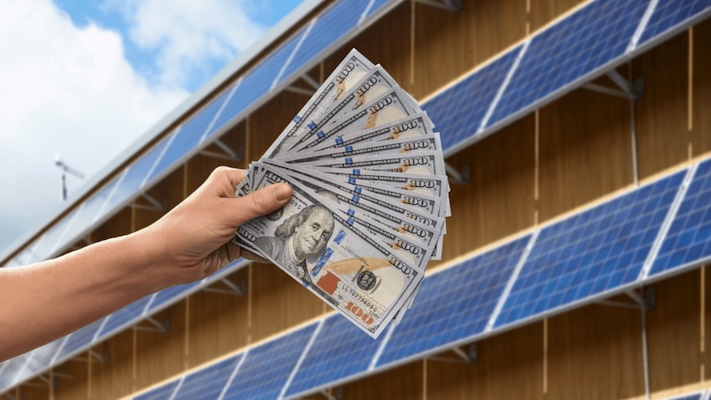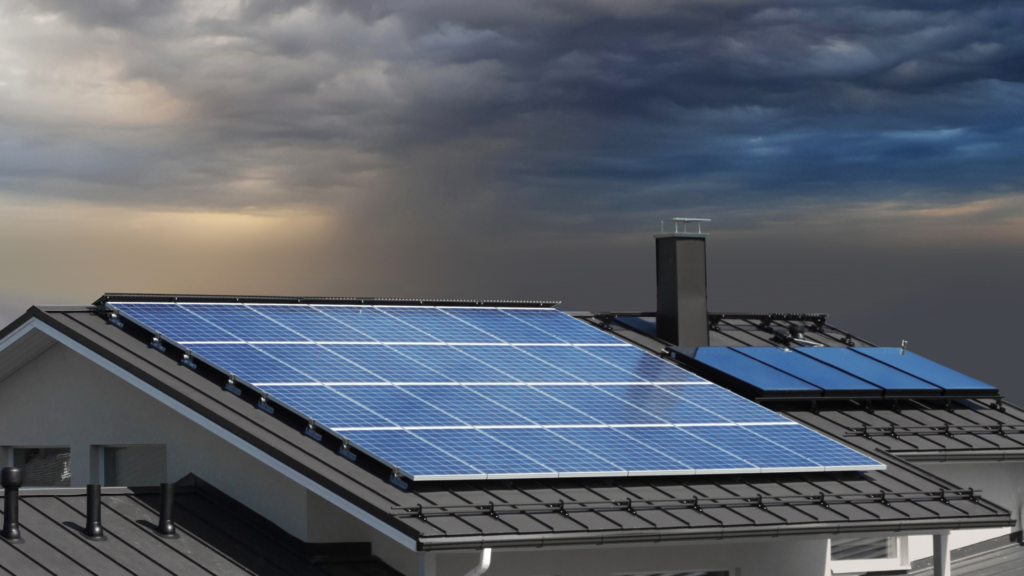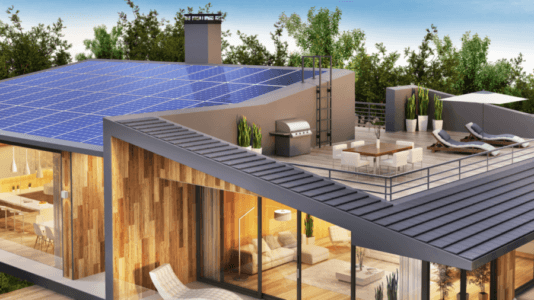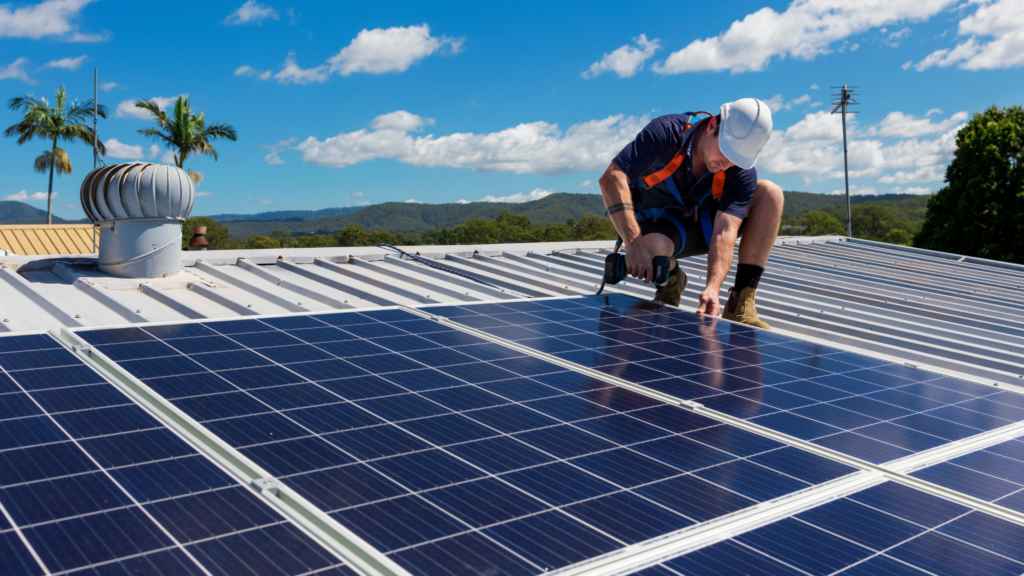
Table of Contents
Dispelling Seven Myths About Solar Panels to Enlighten Your Decision-Making
In today's world, embracing sustainable energy sources has become more crucial than ever. Solar power, in particular, has gained immense popularity as a clean and renewable energy option for homes and businesses alike. However, there are still several myths and misconceptions surrounding solar panels that may be holding you back from making an informed decision about adopting this eco-friendly technology.
Transitioning to solar energy represents a significant decision, and the conflicting information surrounding alternative energy sources can leave you feeling pulled in different directions. While making this change may appear daunting, it's important to note that solar-powered homes have gained tremendous popularity in recent years. The increasing demand for solar panels has led to a competitive market where manufacturers are now offering higher-quality panels at more affordable prices.
Thanks to innovative panel solutions and simplified installation methods, going solar is now more straightforward than ever. In this blog post, we aim to shed light on seven common myths about solar panels and provide you with accurate information to empower your decision-making process. Let's dispel these misconceptions and explore the undeniable benefits of harnessing the power of the sun to illuminate your life.
Myth #1 - Solar Panels Are Too Expensive
One of the most prevalent myths surrounding solar panels is that they are prohibitively expensive. Many people believe that installing solar panels is a luxury reserved for the wealthy. However, this is far from the truth.
Contrary to this myth, the reality is that the cost of solar panels has significantly decreased over the years, making them more accessible to a broader range of homeowners and businesses. This affordability is attributed to several factors. Firstly, advancements in solar panel manufacturing have led to more efficient production processes and reduced material costs, thus lowering the overall price of solar panels. Additionally, many governments around the world offer incentives, such as tax credits, grants, or rebates, to encourage the adoption of solar energy. These incentives substantially offset the upfront costs of solar panel installation.
Furthermore, financial institutions now provide appealing financing options, such as solar loans and leasing programs, which enable homeowners to install solar panels with minimal initial expenses. The most compelling aspect of investing in solar panels, however, lies in the long-term financial benefits they offer. Solar panels generate electricity from sunlight, reducing reliance on grid electricity, which, over time, leads to significant savings on monthly energy bills. In some cases, homeowners have even witnessed a complete elimination of their electricity bills.
The return on investment (ROI) for solar panel installations often proves to be positive within a few years, signifying that the money saved on energy bills and, occasionally, income generated from selling excess electricity back to the grid can recoup the initial investment relatively quickly. Moreover, solar technology continues to advance, making panels more efficient at converting sunlight into electricity, thus enhancing their cost-effectiveness.
In summary, the myth that solar panels are prohibitively expensive is outdated and inaccurate. Thanks to technological advancements, government incentives, and long-term savings, solar panels have become a viable and affordable option for a broader spectrum of homeowners and businesses. Investing in solar panels not only benefits the environment but also represents a prudent financial choice with the potential for substantial returns over time.
Myth #2 - Solar Panels Only Work in Sunny Climates
A widespread misconception suggests that solar panels are exclusively effective in regions abundant with sunshine. While it is indeed true that solar panels perform at their optimal capacity under bright, sunny conditions, it is vital to dispel the belief that they are rendered ineffective in less sunny climates.
The reality is that solar panels are designed to harness energy not only from direct sunlight but from daylight as well. This means that even on overcast or cloudy days, solar panels continue to generate electricity, albeit at a slightly reduced rate compared to a sunny day. This resilience in the face of varying weather conditions is a testament to the remarkable versatility and efficiency of modern solar panel technology.
Today's solar panels are meticulously engineered to capture and convert as much available light as possible. They employ cutting-edge photovoltaic cells and advanced materials that allow them to absorb diffuse sunlight, which is present even when the sun is obscured by clouds. These advancements ensure a consistent and reliable energy supply, irrespective of the weather outside.
In essence, the myth that solar panels are only effective in sun-drenched locales is debunked by the adaptability of modern solar technology. They are capable of generating electricity even in regions with less consistent sunlight, making solar energy a viable and practical choice for a more extensive range of geographic locations. This dispels the notion that solar panels are reserved solely for sunny climates, paving the way for their adoption in diverse settings and contributing to the expansion of clean and sustainable energy sources.
Myth #3 - Solar Panels Require Constant Maintenance
Many individuals are reluctant to invest in solar panels due to a common misconception that they demand ongoing and expensive maintenance, creating an impression of continuous upkeep costs.
Contrary to this belief, the reality is that solar panels are remarkably low-maintenance. Their design is inherently robust and engineered for durability. In most cases, solar panels require only occasional cleaning to remove accumulated dirt and debris, a simple task that can be done a few times a year to ensure optimal performance. This basic maintenance not only keeps the panels functioning efficiently but also prolongs their lifespan, ensuring a sound return on investment.
Furthermore, many reputable solar panel manufacturers offer comprehensive warranties that cover any significant maintenance or repair costs. These warranties provide peace of mind to homeowners and businesses, safeguarding them against unforeseen expenses and further reducing the long-term financial commitment associated with solar panels.
In essence, the myth of constant and costly maintenance associated with solar panels is dispelled by the fact that they are, in reality, impressively low-maintenance technology. With occasional cleaning and the assurance of warranties, the upkeep of solar panels is manageable and cost-effective, making them a practical and sustainable choice for energy-conscious individuals and businesses alike.
Myth #4 - Solar Panels Are an Eyesore
A persistent myth surrounding solar panels is the belief that they are unsightly and have the potential to diminish the visual appeal of your home or property.
In reality, modern solar panels are designed with aesthetics as a top priority. Manufacturers have recognized the importance of seamlessly integrating solar technology into the architecture of homes and buildings. As a result, solar panels are now available in various styles, colors, and sizes, providing homeowners with an array of choices to match the unique design of their properties.
Some advanced solar panels even go a step further by mimicking the appearance of traditional roofing materials. These solar panels are ingeniously designed to blend in seamlessly with your existing roof, becoming virtually indistinguishable from conventional roofing. The result is a harmonious and aesthetically pleasing look that enhances the overall visual appeal of your property rather than detracting from it.
This focus on aesthetics not only addresses the myth of unattractive solar panels but also underscores how solar technology has evolved to become an integral part of modern architecture. Rather than being an eyesore, solar panels can be an elegant addition to your home, showcasing a commitment to both sustainability and style. So, the belief that solar panels compromise the appearance of your property is a myth that has been effectively debunked by innovative design and technology.
Myth #5 - Solar Panels Are Inefficient
Another widespread misconception surrounding solar panels is the belief that they are inherently inefficient and incapable of generating sufficient electricity to meet the energy demands of a household or business.
In stark contrast to this myth, the reality is that solar panel efficiency has made remarkable strides over the years. Modern solar panels are highly efficient at converting sunlight into electricity. These advanced photovoltaic cells can capture a substantial amount of sunlight and convert it into usable energy. This efficiency ensures that solar panels can indeed generate a significant portion of the electricity required to power homes and businesses.
Furthermore, advancements in energy storage solutions, such as batteries, have further strengthened the effectiveness of solar panels. These energy storage systems allow you to store excess electricity generated during sunny days for use during periods of reduced sunlight, such as cloudy days or nighttime. This ensures a consistent and reliable power supply, addressing any concerns about intermittent energy production.
In essence, the myth of solar panels being inefficient and incapable of meeting energy needs has been convincingly debunked by the considerable advancements in solar technology and the availability of energy storage solutions. Today's solar panels are not only efficient but also capable of providing a reliable and consistent source of electricity, making them a practical and sustainable choice for both residential and commercial energy needs.
Myth #6 - Solar Panels Harm the Environment
A prevailing misconception among some individuals is the belief that both the production and disposal of solar panels have a detrimental impact on the environment.
The reality is that solar panels contribute to environmental sustainability and represent a significant step towards reducing the ecological footprint of our energy production. While it is true that there are environmental considerations in the manufacturing process of solar panels, it's important to assess their overall impact in comparison to traditional fossil fuels.
Solar panels harness the power of the sun to generate clean and renewable energy. This means they produce electricity without emitting harmful pollutants or greenhouse gases into the atmosphere. In effect, the use of solar panels reduces our reliance on fossil fuels, which are known to be a major contributor to air pollution, climate change, and environmental degradation.
Furthermore, the carbon emissions associated with manufacturing and installing solar panels are typically recouped within a few years of clean energy production. This carbon payback period further underscores their positive environmental impact. Once operational, solar panels operate virtually emissions-free, continuously reducing our carbon footprint.
Moreover, many solar panel manufacturers are taking proactive steps to minimize the environmental impact of their products. They are implementing recycling programs to ensure that end-of-life solar panels are safely and responsibly disposed of or repurposed. This commitment to recycling helps reduce waste and ensures that valuable materials are reused rather than ending up in landfills.
While there are some environmental considerations in the lifecycle of solar panels, their overall impact on the environment is undeniably positive. Solar panels promote clean energy production, reduce greenhouse gas emissions, and contribute to a more sustainable future. Their role in reducing our reliance on fossil fuels is a significant step toward mitigating environmental harm and ensuring a greener planet for generations to come.
Myth #7 - Solar Panel Installation Is Complicated
Contrary to this myth, the reality is that solar panel installation is a straightforward and well-established procedure. It is a process that experienced professionals have mastered, ensuring that it proceeds smoothly and efficiently.
The first step in solar panel installation involves professionals assessing your property. They evaluate various factors, such as your location, roof orientation, and shading, to design a solar panel system that is perfectly tailored to your specific needs and environmental conditions.
Once the system design is complete, the installation itself is carried out with precision and expertise. This phase typically takes only a few days, minimizing any inconvenience or disruption to your daily life. Professional installers securely affix the solar panels to your roof or mount them in a suitable location, connect them to the electrical grid, and ensure that the system is operating optimally.
After the installation is completed, your solar panel system will require minimal ongoing effort on your part. It operates seamlessly, generating clean electricity from sunlight without any intervention needed. In essence, the benefits of solar energy become readily accessible with little to no additional effort required from the homeowner or business owner.
In summary, the myth that solar panel installation is a complex and time-consuming process is dispelled by the fact that it is a well-established and efficient procedure. With the expertise of experienced professionals, your transition to solar energy is a smooth journey, offering you the benefits of clean and sustainable electricity with minimal hassle or disruption to your daily routine.
Conclusion
In conclusion, dispelling these seven common myths about solar panels reveals the incredible potential of solar power as a clean and sustainable energy source. Solar panels are more affordable than ever, work efficiently in various climates, require minimal maintenance, and can enhance the aesthetics of your property. Their efficiency continues to improve, and they have a positive impact on the environment. Lastly, the installation process is straightforward and hassle-free.
As you consider your options for embracing solar power, remember that accurate information is key to making an informed decision. Solar panels are not only a financially savvy choice but also a responsible one that contributes to a greener, more sustainable future for generations to come. So, let go of these myths and harness the power of the sun to illuminate your life while helping the planet. It's a win-win for you and the environment.
Ready to take the first step towards a brighter, greener future with solar panels? Contact us today to learn more and get started on your sustainable energy journey!



















